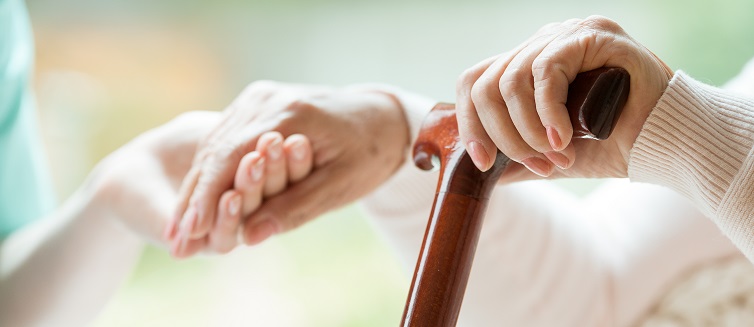Updated Nov. 18, 2020
It’s no secret: Being a caregiver for an older loved one or a loved one with a disability can be physically, mentally, and emotionally challenging. For these caregivers, concerns about COVID-19’s impact on their loved ones may also weigh heavily.
“Sometimes caregivers spend so much time and energy caring for other people that they neglect their own activities, health, and emotional well-being,” says Richard Morycz, PhD, associate professor of psychiatry, medicine, and social work at the University of Pittsburgh.
Never Miss a Beat!
Subscribe to Our HealthBeat Newsletter!
Thank you for subscribing!
You can now select the specific newsletters you'd like to receive.
You are already subscribed.
Subscribe to more newsletters in our email preference center.
Sorry, an error occurred. Please try again later.
Get Healthy Tips Sent to Your Phone!
Caregiving by the Numbers
In the United States alone, there are more than 45 million unpaid family caregivers. “Twenty percent of all households in this country include people who are providing care,” says Dr. Morycz. Most caregivers (60 percent) are women, although the number of male caregivers has increased in recent years.
The average caregiver — whose age is in the mid-60s — dedicates 20 hours per week to providing home care for a relative. Many (60 percent of male caregivers and 41 percent of female caregivers) also work full-time jobs outside the home, making them even more susceptible to stress-related issues.
The Toll of Constant Caregiving
When you’re a full-time caregiver, it’s easy to feel overwhelmed, especially when you’re caring for a loved one on top of the pressures of the pandemic, work, family, home, and finances. “The caregiver is at increased risk of developing their own physical and emotional problems,” said Morycz. “In turn, that threatens their ability to provide ongoing care to the people they love.”
The most typical issues caregivers experience are mental and physical exhaustion, sleep deprivation, and feelings of isolation and sadness.
Care for the Caregiver
As a caregiver, one of the most important things you can do is find a sympathetic confidante who will offer support and encouragement. “The best way of getting help and caring for yourself is face-to-face interaction with someone other than the person you are caring for,” says Dr. Morycz.
Other important self-care tips for caregivers include:
- Make time for yourself and take routine breaks without feeling guilty. Even something as simple as taking 30 minutes of alone time to read or take a walk can help. You’ll be a much better caregiver if you’re not on duty 24/7.
- Exercise to relieve stress. Whether it’s a long walk, an hour of yoga, or a bike ride in the country, do something you enjoy. Regular exercise is a good habit for caregivers to develop.
- Eat as healthfully as you can.
- Make sleep a priority.
- Use relaxation techniques. For many people, taking care of the caregiver involves some form of quiet self-care. Simple practices, such as mindfulness, prayer, meditation, or progressive muscle relaxation can help relieve stress. Whatever you choose to do, make it part of your daily routine.
Find Caregiver Resources
High on any list of caregiver tips is developing a good support system. Find local or online support groups; nothing beats exchanging ideas and experiences with people who are in a similar situation. Local churches, synagogues, and mosques may host groups and have support services in place.
Every county also has an Area Agency on Aging that provides a variety of services, such as companion services, home health aides, and housekeeping services.
If you have questions about full, in-network access to UPMC doctors and hospitals, please call our helpline at 1-855-646-8762.
Editor's Note: This article was originally published on , and was last reviewed on .
About UPMC Senior Services
UPMC Senior Services provides resources for older adults, their loved ones, and caregivers at every stage of the aging process. We connect them with educational programs and learning opportunities to help support them, using our services to help seniors live longer and healthier lives. We partner with other organizations to determine the biggest challenges facing seniors and work to overcome them. We also work to inform in-home caregivers, hospital clinicians, and staff about the biggest challenges seniors face, striving to improve care. To learn more about our mission, visit our website.
